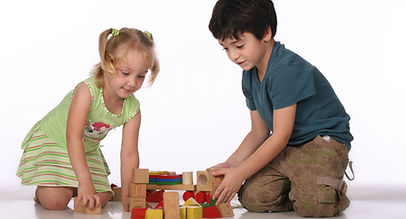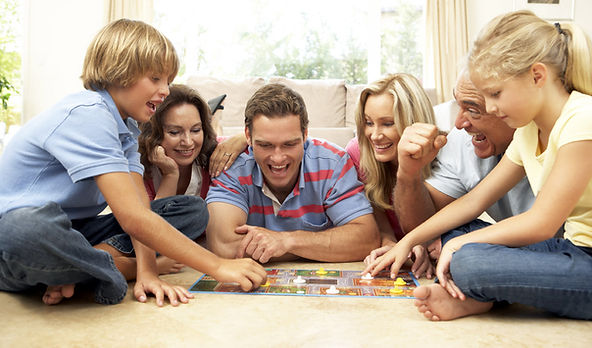
CHILDREN AND ALCOHOL
35% of children 15 years old have consumed alcohol in their lifetime. By 8th grade almost 30% of children have tried drinking alcohol. The average age of a boy who tries alcohol is 11, girls are on average 13. 68% of 12th graders have tried alcohol.

PEER PRESSURE AND DRUGS
Children want to "fit in" with their peers. Without knowing the long term risks and affects that drugs can have on a person they begin to experiment with drugs and alcohol as a way to fit in. An alarming 50% of children are pressured by their peers to try alcohol or drugs.
SOCIAL MEDIA AND DRUGS
In today's social environment kids see drugs and alcohol in a "cool" way. They see people they know post pictures of parties where alcohol is front, center and "cool". Alcohol companies also spend millions advertising on Social Media with ads that make alcohol look very inviting.
FUTURE ADDICTIONS
Children that start experimenting with alcohol before the age of 15 are 5 times more likely to become addicted to alcohol or drugs. They are also more likely to "graduate" to more illicit and harmful drugs and are more likely to drive drunk or put themselves in vulnerable situations.
Talking to children about alcohol and drug abuse is crucial and can be done effectively by following a few key principles:
-
Start Early and Keep it Ongoing: Begin conversations when children are young (elementary school age) and continue them as they grow. Early discussions can lay a foundation, and ongoing conversations allow you to address new questions and challenges as they arise.
-
Be Open and Approachable: Create an environment where your child feels comfortable asking questions and sharing concerns without fear of judgment. Let them know you're there to listen and help.
-
Educate, Don't Scare: Focus on providing factual information about the effects of alcohol and drugs on the body and mind, especially the developing brain. Avoid exaggerated scare tactics, as these can backfire and undermine your credibility.
-
Discuss Risks and Consequences: Talk about the specific risks associated with substance use, including health problems, academic issues, legal consequences, and impaired judgment. Emphasize how these can impact their goals and future.
-
Address Peer Pressure: Role-play scenarios where they might encounter peer pressure. Help them develop strategies and phrases to say "no" confidently and how to remove themselves from uncomfortable situations.
-
Set Clear Expectations and Rules: Clearly communicate your family's rules and expectations regarding alcohol and drug use. Explain the consequences for breaking these rules.
-
Be a Role Model: Children often learn by observing. Be mindful of your own alcohol consumption and medication use. Demonstrate healthy coping mechanisms and responsible choices.
-
Listen More Than You Talk: Encourage your child to share their thoughts, feelings, and what they've heard from friends or media. Listen actively to understand their perspectives and concerns.
-
Discuss Media Influence: Talk about how alcohol and drugs are portrayed in movies, TV shows, music, and social media. Help them critically evaluate these messages and understand that they often don't show the full reality.
-
Focus on Healthy Choices and Activities: Promote healthy alternatives to substance use, such as sports, hobbies, volunteering, and spending time with supportive friends and family. Emphasize the importance of self-care and stress management.
-
Know When to Seek Help: Be aware of the signs of substance use and know where to find professional help if you suspect your child is experimenting or developing a problem.
Remember, these conversations are not one-time events but an ongoing dialogue that evolves as your child grows.

One thing parents may struggle with is explaining the difference to your children between MEDICINE and DRUGS. Because children may see people taking medicine and then are told "don't take drugs" this can become confusing to your child. "Let's Chat" gives you the perfect opportunity to explain this confusing and complicated topic.
As with everything, Peer Pressure plays a huge role in children's decisions. When playing "Let's Chat" you have the opportunity to talk about what it means to be a good friend and how to pick good friends. You also have the opportunity to address what your child should do when they see a friend doing something wrong. These are everyday occurrences in your child's life.
"Let's Chat" addresses Drugs and Alcohol with questions like:
-What should you do if anyone offers you drugs or alcohol?
-What is the difference between medicine and drugs?
You then have the chance to discuss these issues with your child in a safe, secure, and comfortable setting. And with answers and solutions that fit your family!
Let's Chat!



Drugs and Alcohol
"Let's Chat" is a Unique Family Game Experience
-
Let's Chat is Unique in the fact that it literally grows up with your child. When your child is younger, you are creating an open communication environment, approaching serious issues in a delicate manner. As your children get older, you are able to expand upon the serious issues with age appropriate conversations. Certainly your conversation with a 5 year old will be different than with a 10 year old. But all the while, you are building a knowledge bank of information on serious issues your child may have to face.
-
Let's Chat is Unique in the way that it encourages open communication between a parent and child which can be the most effective way of shaping your child's growth and future. But in many cases parents do not know how to talk with their child about such important topics without making it sound scary or even worse, a lecture. "Let's Chat" takes away the awkwardness of these subjects and puts them in a very "matter of fact" way.
-
Let's Chat is Unique because every family has different dynamics and "Let's Chat" gives you the opportunity to discuss these issues in a way that is best suited for your individual family. While school may address these issues, they are addressed in such a generic way that it may not be suitable for your family with it's unique set of circumstances.
-
Let's Chat is Unique with the way it approaches and teaches children. Data shows that children learn from repetition, and in an emergency situation you want your child to know right away, without hesitation, how to react to a serious issue. Hoping that your child will know how to react is not good enough. Because your child will love to play "Let's Chat" with you, you have the opportunity teach and reiterate these valuable life lessons.
-
Let's Chat is Unique by the way that it empowers the child to feel they can open up and communicate in an environment that safe and non-threatening. Each person starts the game with a card that they can use at anytime. It says "Let's Chat about this later!" It gives the parent and child the opportunity to discuss things privately so that the child does not feel embarrassed or shy. It also gives the parents the perfect way to bring it up later when the opportunity arises.

The question could be:
What do I do if someone offers me alcohol?
The question could be:
What do I do if someone tells me to hide this from my parents?
The question could be:
What do I do if someone makes me feel uncomfortable?
How To Play Let's Chat:
The greatest thing about how this board game is set up is that everything begins and ends at HOME, where it should. The players pick a card which has a question on it, at that point you "chat" about the question and the answer, then move the appropriate number of spaces. There are no right or wrong answers, only the opportunity for you to "chat" with your child about how your family feels it is best for the issue to be handle
